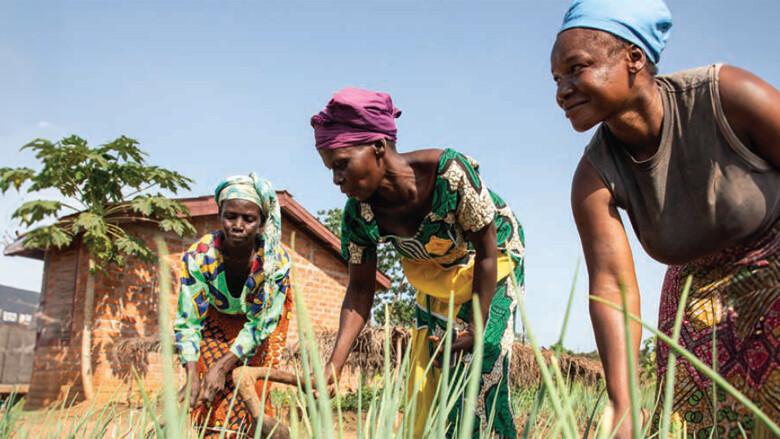
Bangui, CAR – The Central African Republic (CAR), a nation grappling with the intertwined challenges of climate change, fragility, and persistent underdevelopment, is poised to transform its vulnerabilities into opportunities. With approximately 70% of its population living below the poverty line and recurrent climate shocks disrupting livelihoods, the CAR is adopting a people-centered approach to build a greener, more inclusive, and resilient economy.
Shared Vulnerabilities Across Urban and Rural Landscapes
In rural areas, where agriculture sustains over 70% of the population, increasingly erratic rainfall patterns and prolonged droughts are devastating crop yields, pushing vulnerable families deeper into poverty. The impact extends beyond mere food security, hindering economic stability and social development.
Urban centers like Bangui and Berberati are equally susceptible, facing heightened risks from recurrent flooding. In Bangui, 33% of built-up areas are threatened, while Birao sees a staggering 54% exposure, resulting in disrupted infrastructure, compromised essential services, and increased risk of waterborne diseases. The frequency and intensity of these floods are exacerbating existing socioeconomic vulnerabilities.
Human-Centered Climate Solutions: A Path to Resilience
The World Bank's Climate and Development Report (CCDR) for CAR provides a comprehensive roadmap for addressing these critical challenges. Key solutions include:
Resilient Infrastructure Development: Modernizing drainage systems, fortifying roads, and constructing climate-resilient housing are essential to protect communities and ensure the continuity of essential services during extreme weather events.
Climate-Smart Agriculture: Promoting agroforestry, cultivating drought-resistant crops, and investing in advanced irrigation technologies are crucial for enhancing agricultural productivity and food security.
Human Capital Investment: Empowering youth through training programs, integrating climate adaptation into educational curricula, and equipping local leaders with the skills to manage climate risks are vital for long-term resilience.
Community Engagement: Fostering active participation from citizens in urban planning, as demonstrated in Bangui, enhances local ownership and ensures that climate solutions are tailored to community needs.
Ecosystem restoration: The CAR has valuable forests, and wetlands. Protecting these ecosystems is vital for climate resilience. Reforestation efforts, and protection of existing forests will help with carbon sequestration, and flood mitigation.
Analysis reveals that every dollar invested in climate resilience can yield four dollars in economic and social benefits, underscoring the compelling case for prioritizing these investments.
Strengthening Governance and Mobilizing International Support
Effective governance and robust international collaboration are indispensable for the successful implementation of these initiatives. The CCDR has already influenced the National Development Plan (2024-2028), embedding climate and environmental considerations into national development strategies.
However, translating these recommendations into tangible outcomes necessitates substantial financial resources and concerted efforts from development partners. Enhanced coordination, streamlined funding mechanisms, and capacity-building initiatives are essential to ensure that resources are deployed effectively and efficiently.
A Vision for a Sustainable and Inclusive Future
By placing people at the forefront of climate action and fostering collaboration between rural and urban communities, the CAR can transform its vulnerabilities into catalysts for sustainable development. The CCDR provides a clear and actionable roadmap for aligning national priorities with global climate goals, paving the way for a more inclusive, resilient, and prosperous future for all Central Africans.
[Copyright (c) Global Economic Times. All Rights Reserved.]






























